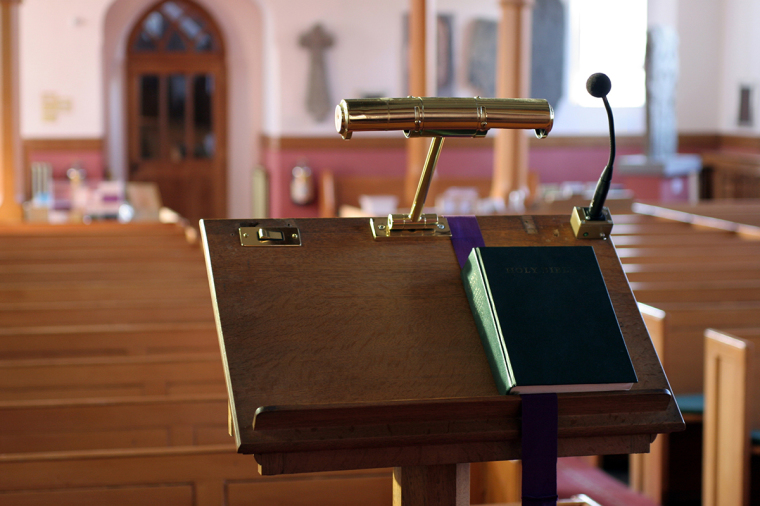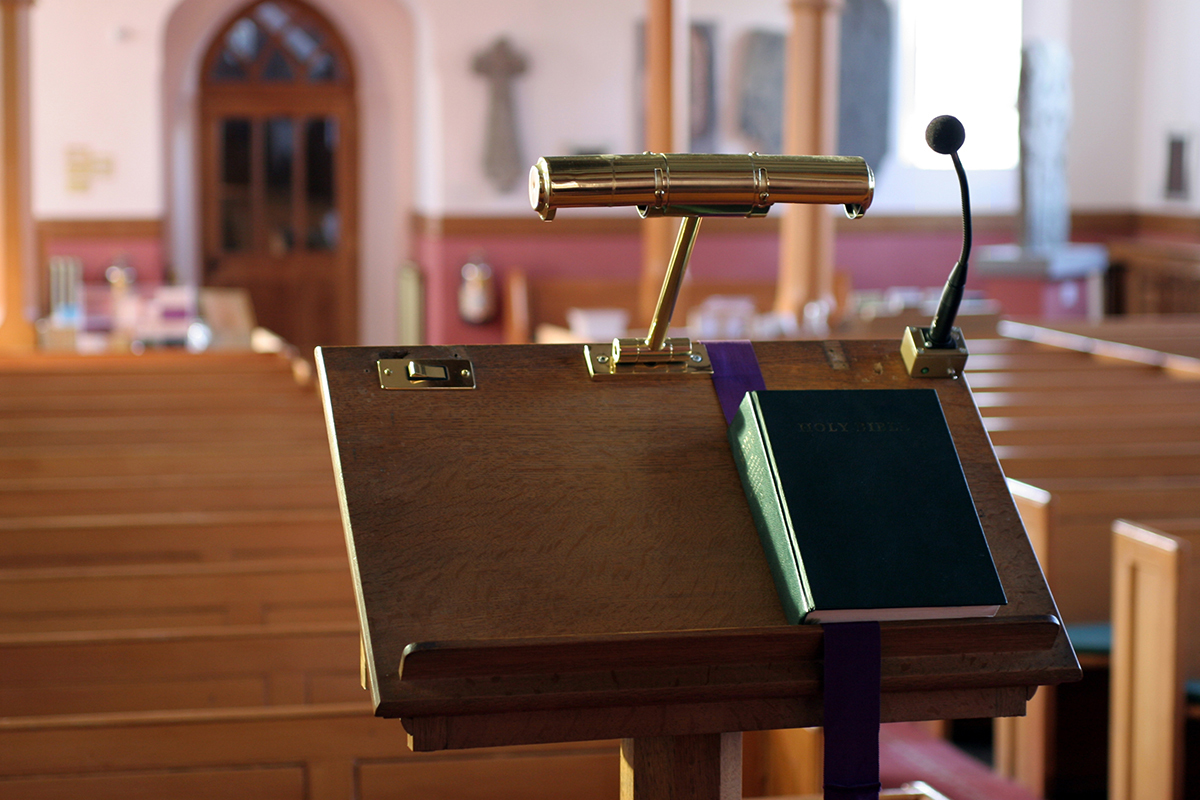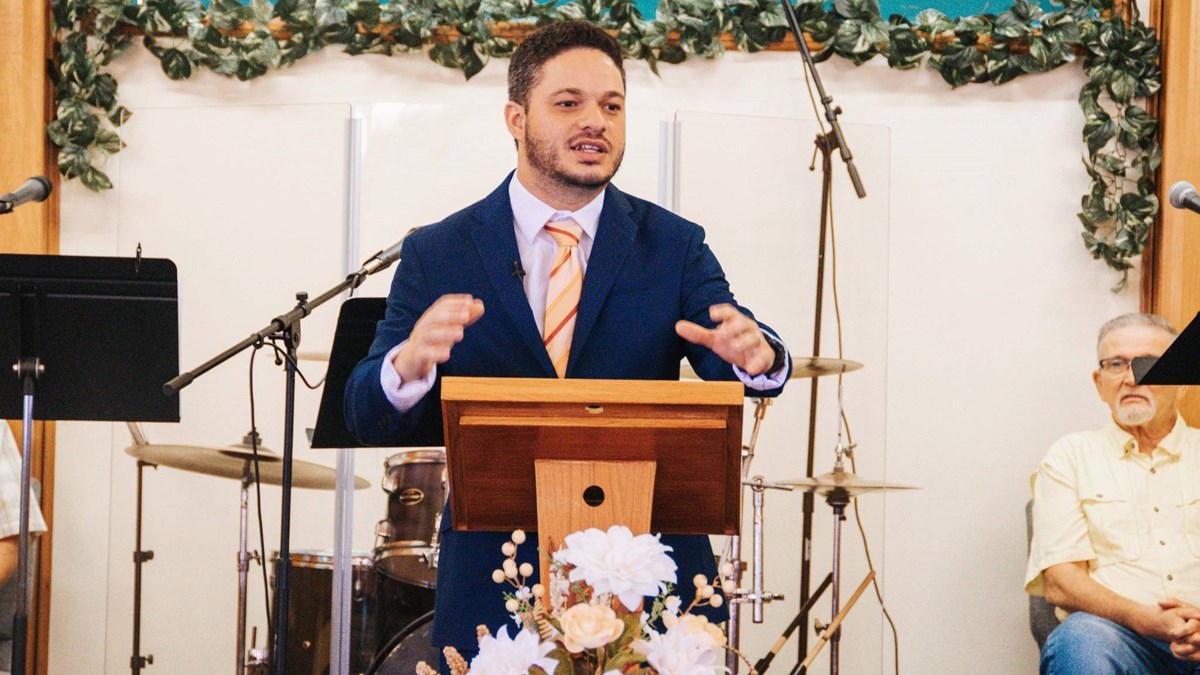
Pastors at mainline Protestant churches are much more likely to identify as liberal than their congregants as most of them hold progressive positions on hot-button social issues, according to a new survey.
The Public Religion Research Institute released the results of a study based on responses collected between November 2022 and May 2023 from 3,066 clergy last month.
All respondents belong to one of the seven largest mainline Protestant denominations: the United Methodist Church, the Evangelical Lutheran Church in America, the American Baptist Churches USA, the Presbyterian Church USA, the Episcopal Church, the United Church of Christ and the Disciples of Christ.
The survey examined the political ideology and partisan affiliation of pastors, comparing such information to data about the views of congregants from the PRRI’s 2022 Health of Congregations Survey. Overall, 55% of pastors identify as liberal, while moderates and conservatives each constitute 22% of respondents.
On the other hand, just 23% of white mainline Protestant churchgoers categorize themselves as liberal. Larger shares of such churchgoers view themselves as moderate (32%) and conservative (43%).
Broken down by specific denomination, the United Church of Christ had the highest share of pastors who identify as liberal (84%), followed by the Presbyterian Church USA (70%), the Episcopal Church (69%), the Evangelical Lutheran Church in America (68%) and the Disciples of Christ (62%). Liberals accounted for 44% of the United Methodist Church clergy. Only the American Baptist Churches USA had a majority of clergy (56%) who labeled themselves as conservative.
Looking at partisan affiliation as opposed to political ideology yielded similar findings, with 49% of mainline Protestant clergy affiliating with the Democratic Party compared to just 24% of white mainline Protestant congregants. A plurality of white mainline Protestant churchgoers (36%) identify as Republicans and 35% are independents.
Seventy-one percent of United Church of Christ clergy identified with the Democratic Party, along with 61% of Presbyterian Church USA clergy, 60% of Episcopal Church clergy, 60% of Disciples of Christ clergy and 59% of Evangelical Lutheran Church in America clergy. Democrats made up 38% of the United Methodist Church pastors surveyed, while a narrow plurality (32%) of American Baptist Churches USA clergy were Republicans.
On issues related to LGBT ideology, members of the clergy were also more liberal than white mainline Protestant churchgoers. Ninety percent of pastors surveyed support “nondiscrimination protections” for LGBT people, while 79% favor allowing same-sex couples to marry and 69% oppose allowing faith-based businesses to refuse to provide services for LGBT people if doing so violates their religious beliefs.
Among white mainline Protestant churchgoers, LGBT nondiscrimination protections (77%) and same-sex marriage (72%) also received majority support, while 57% expressed opposition to religiously based service refusals. Near-universal support for LGBT nondiscrimination protections was measured among pastors affiliated with the United Church of Christ (97%), the Evangelical Lutheran Church in America (96%), the Episcopal Church (95%) and the Presbyterian Church USA (94%).
Substantially large shares of pastors affiliated with the Disciples of Christ (90%), the United Methodist Church (87%) and American Baptist Churches USA (80%) also favored LGBT nondiscrimination protections. Pastors affiliated with the United Church of Christ (95%), the Presbyterian Church USA (94%), the Evangelical Lutheran Church in America (93%) and the Episcopal Church (91%) expressed near-unanimous support for same-sex marriage.
While smaller majorities of clergy associated with the Disciples of Christ (78%) and the United Methodist Church (72%) favored same-sex marriage, just 39% of American Baptist Churches USA pastors did.
Ninety percent of United Church of Christ pastors opposed religiously based service refusals, followed by 79% of Episcopal Church clergy, 78% of those affiliated with the Evangelical Lutheran Church in America and the Presbyterian Church USA, 71% of Disciples of Christ pastors and 62% of United Methodist Church pastors.
American Baptist Churches USA pastors were once again the outlier on religiously based service refusals, with just 37% opposing allowing faith-based business owners to refrain from providing services to LGBT individuals if doing so went against their religious beliefs. Differences in opinion between pastors and congregations as well as across different denominations also manifested on the issue of abortion.
Seventy-three percent of mainline Protestant pastors opposed the United States Supreme Court’s Dobbs v. Jackson Women’s Health Organization decision, which overturned the Roe v. Wade ruling that legalized abortion nationwide. A smaller share of white mainline Protestant churchgoers (67%) disapproved of the reversal of Roe.
Opposition to the reversal of Roe was highest among the United Church of Christ clergy (91%) but large majorities of Presbyterian Church USA pastors (85%), Evangelical Lutheran Church in America pastors (84%), Episcopal Church pastors (83%), Disciples of Christ clergy (80%) and United Methodist Church pastors (65%) also disapproved of the overturning of Roe. American Baptist Churches USA pastors were the only group of white mainline Protestant clergy where less than half (48%) opposed the Dobbs decision.
Ryan Foley is a reporter for The Christian Post. He can be reached at: ryan.foley@christianpost.com
Free Religious Freedom Updates
Join thousands of others to get the FREEDOM POST newsletter for free, sent twice a week from The Christian Post.




























![[Video] More – Aghogho » GospelHotspot](https://gospelhotspot.net/wp-content/uploads/2024/04/More-Aghogho.jpeg)
















